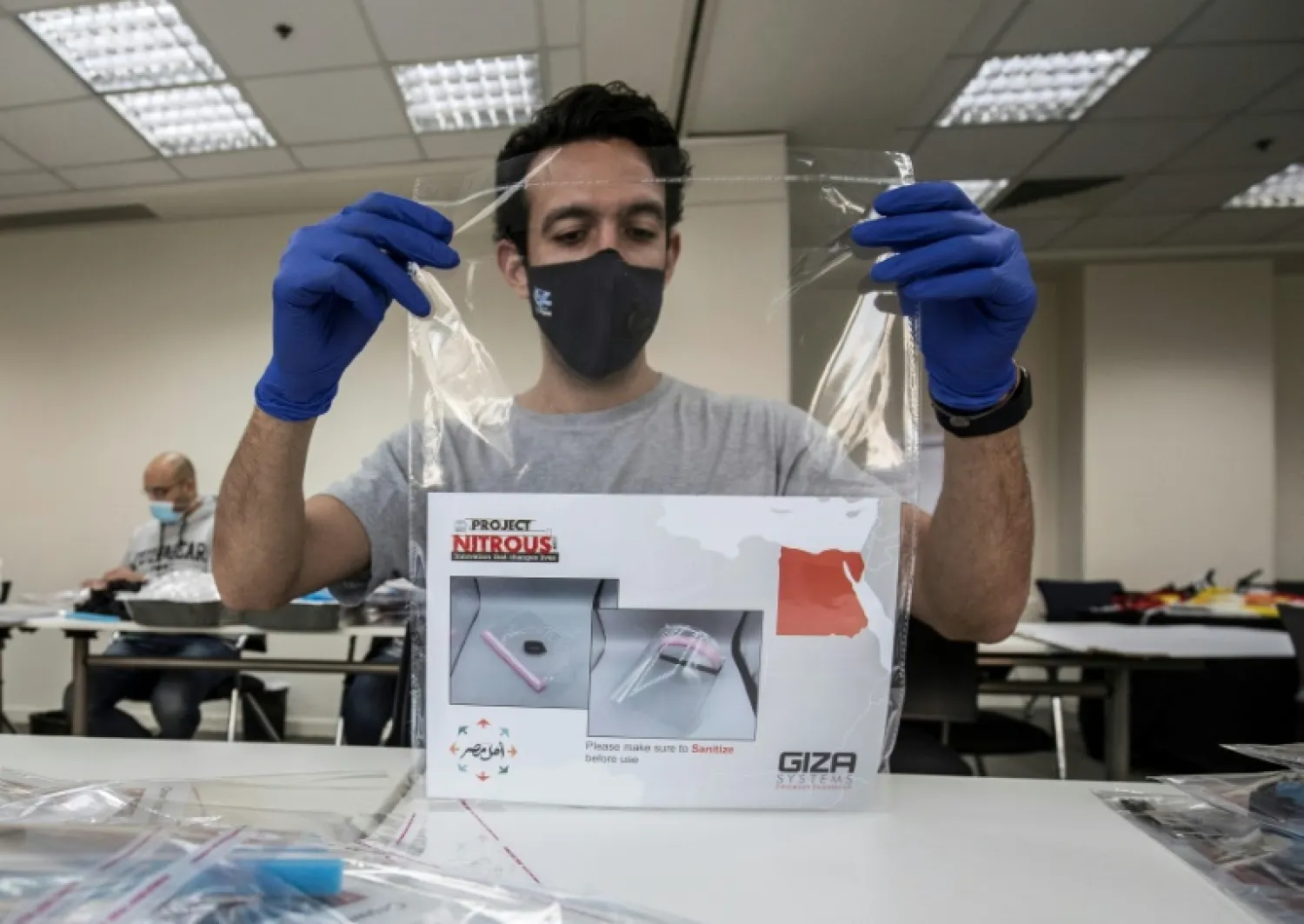Many healthcare workers in Egypt's threadbare hospital system must provide their own protective gear, so when a digital design company started 3-D printing face shields, they gratefully accepted.
Since the novel coronavirus first hit Egypt, medical doctor Yahya Diwer has been working all-night shifts as head of an intensive care unit in a Cairo hospital.
Around 100 COVID-19 cases have since passed through his Sheikh Zayed al-Nahyan hospital, located in a low-income suburb of the capital, exposing staff to a heightened risk of contagion.
So when Diwer spotted a widely shared social media post by the Cairo-based tech company Giza Systems last month he was among the first to get in touch via Facebook.
The company uses digital printing technology mainly to produce assistive devices for people with disabilities, working in a lab called Project Nitrous.
With the arrival of the virus -- which has by now infected over 4,000 people and claimed 300 lives in Egypt, according to government data -- the company quickly jumped into action.
It designed a face shield that can be printed in plastic, cut out by laser and simply assembled, and started delivering the devices to thousands of doctors -- for free.
"You feel safe wearing it and the design is sleek," Diwer told AFP. "It's easier than wearing a set of goggles and can be easily cleaned."
Mohamed El Hossary, director of Giza Systems' Education Foundation, said its usual work aims to create "everyday solutions for those with a disability.
"Since we have experience in assistive technology, we went down to hospitals and asked them what they needed, and that's how we came up with manufacturing a face shield."
The firm is now distributing around 2,000 face shields a day to medics nationwide and has partnerships with around 25 public and private hospitals.
Volunteers such as university student Abdel-Raziq Sabry, 21, help by packing the devices for shipment.
"You don't want to be sitting at home doing nothing when you can be doing something to help doctors and society as well as the country," he said.
The frontline efforts of Diwer's team have been honored. His hospital was chosen by the health ministry as one of the major isolation wards where virus carriers can recover.
In a message he posted on Facebook, the doctor paid tribute to his staff as well as the tech company, saying that "we are so humbled and honored to fight for the people against COVID-19".









